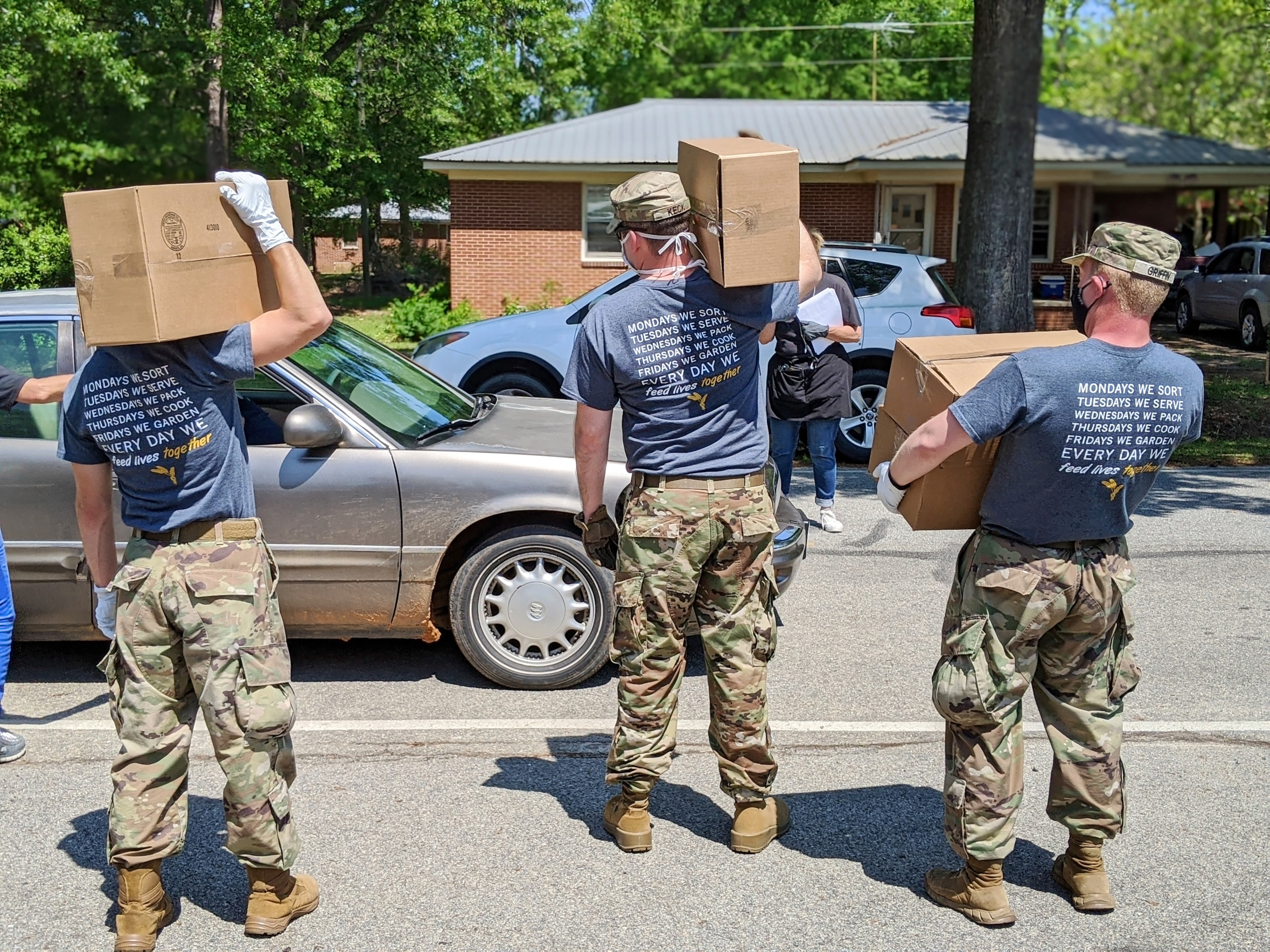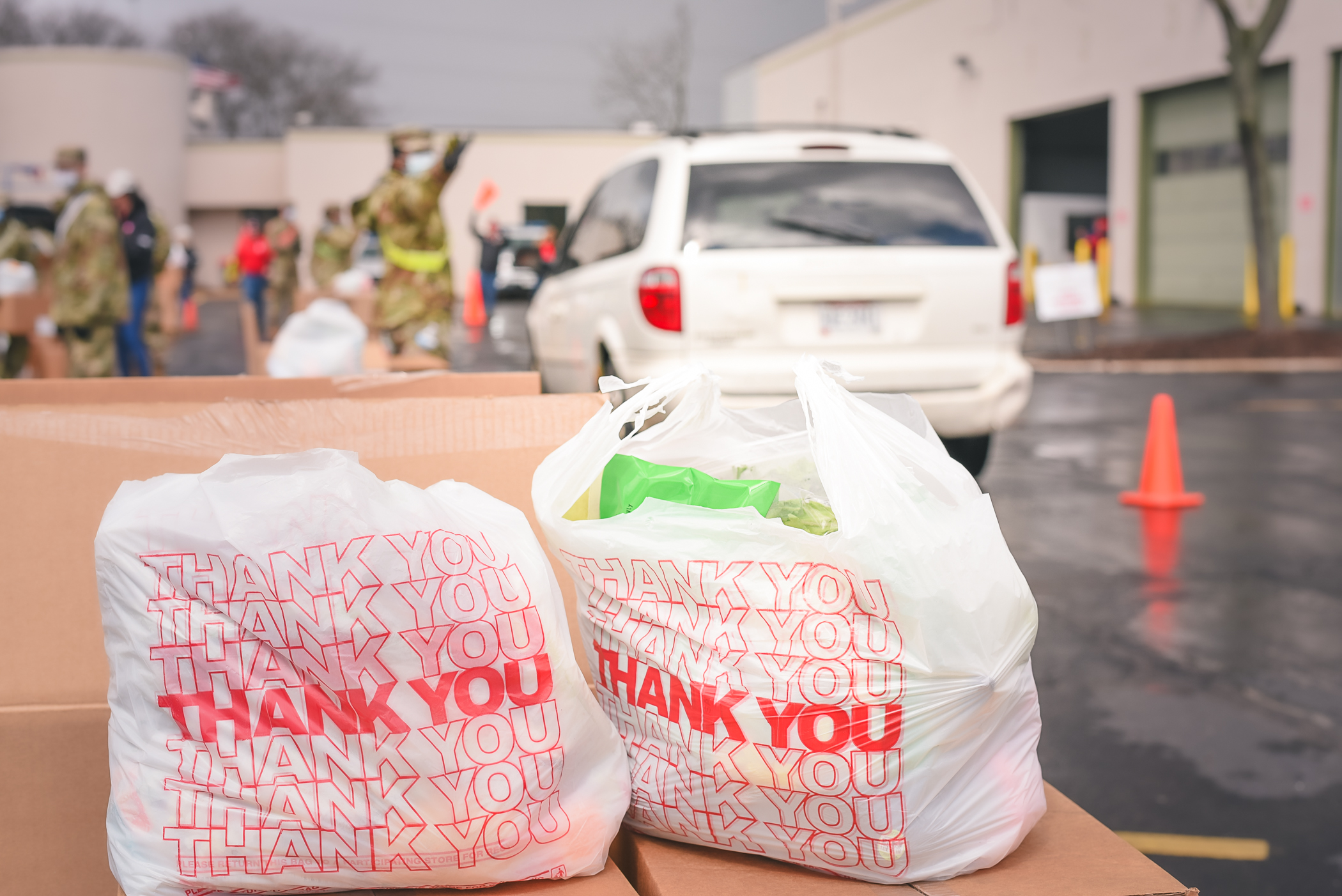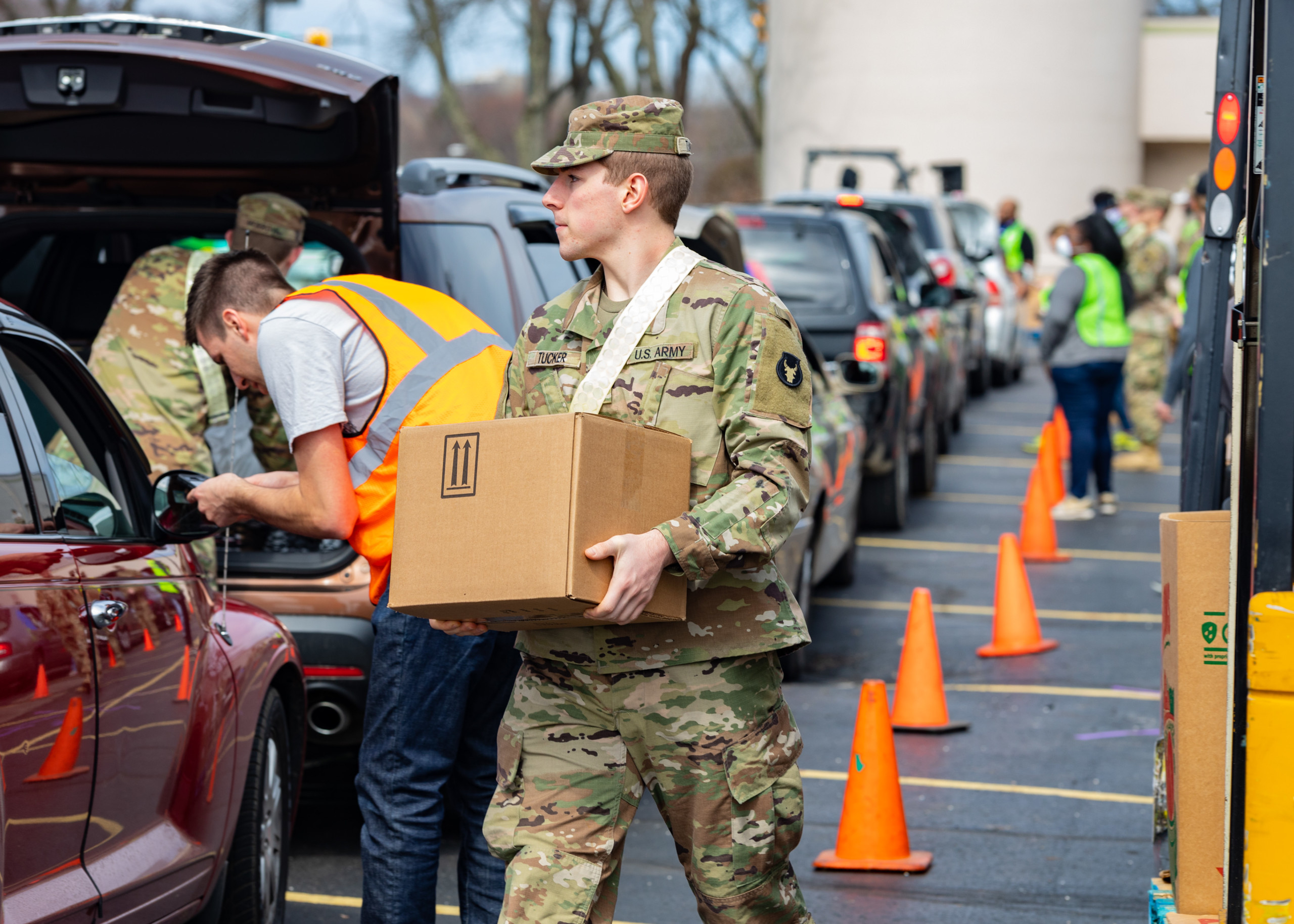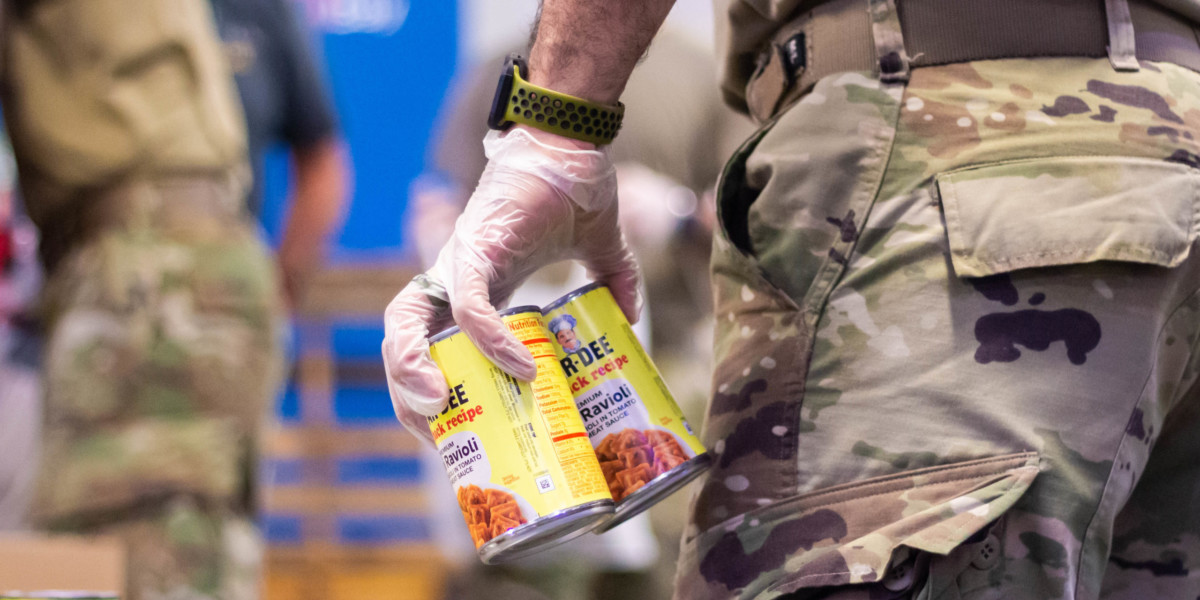Written By: Les Sinclair, Communications & PR Manager
Veterans Day is a time to thank our veterans for their service, recognize their roles in our national security, and underscore their sacrifice. It is odd to think that anyone who has risked life and limb for national security doesn’t have food security, but it happens daily.
The Food Bank is there for those who’ve served when needed. In the last year, we served 1,450 individuals who self-identify as veterans. Veterans with disabilities, female veterans, and veterans who are unemployed are all more likely to be food insecure. If you know nine working-age veterans, chances are at least one of them lives in a food-insecure household.
That’s too many. No one who has served this country should need to worry about how to feed their family. But many of them do.
A salute to some local veterans
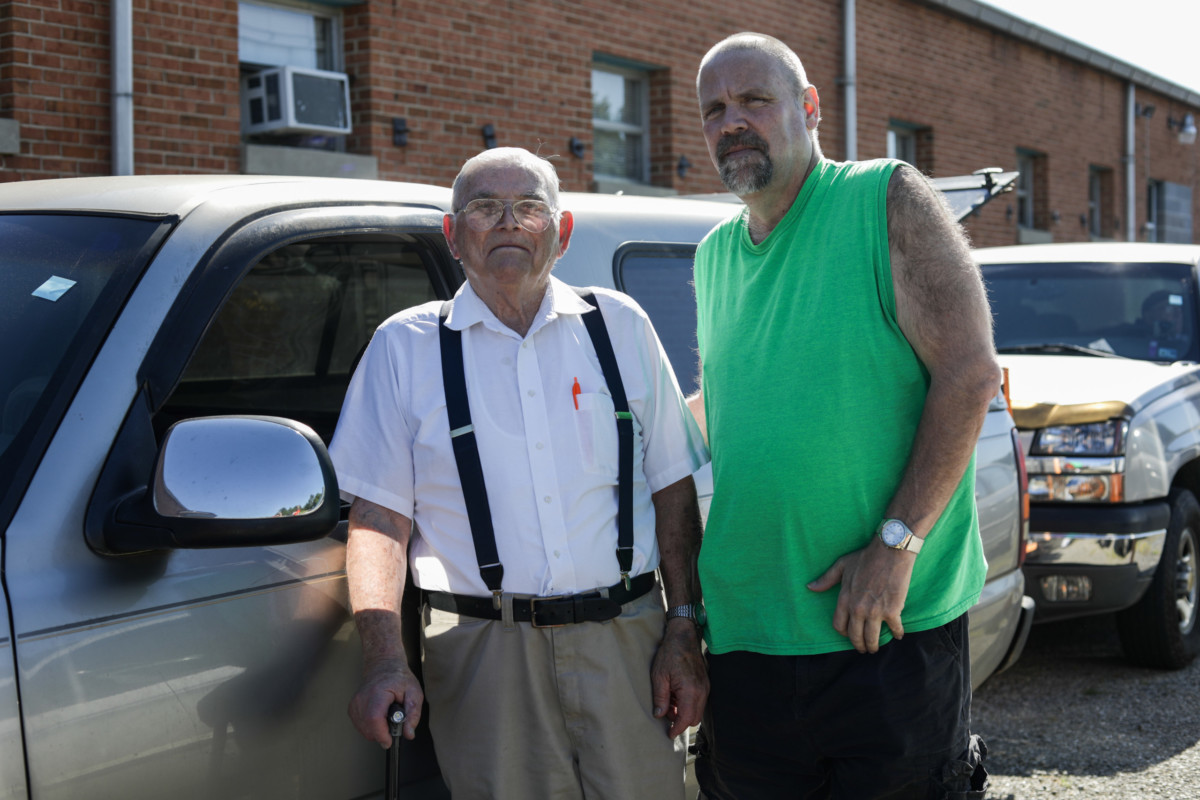
Meet Joe
Joe (pictured on the left with his son, Joey) has lived in Buckingham since 1948. He served in the National Guard Reserves and then the Korean War, where he handled munitions and rations.
Who could imagine that after a lifetime of service to country and callused hands, he’d be in this situation today. He’s been a guest of, and a donor to, the Food Bank since 2010.
Joe says, “If everybody would send a small support, even if but $10, it would amount to a whole lot.”
At age 86, he speaks of his service, “I’d go again if they need me.”
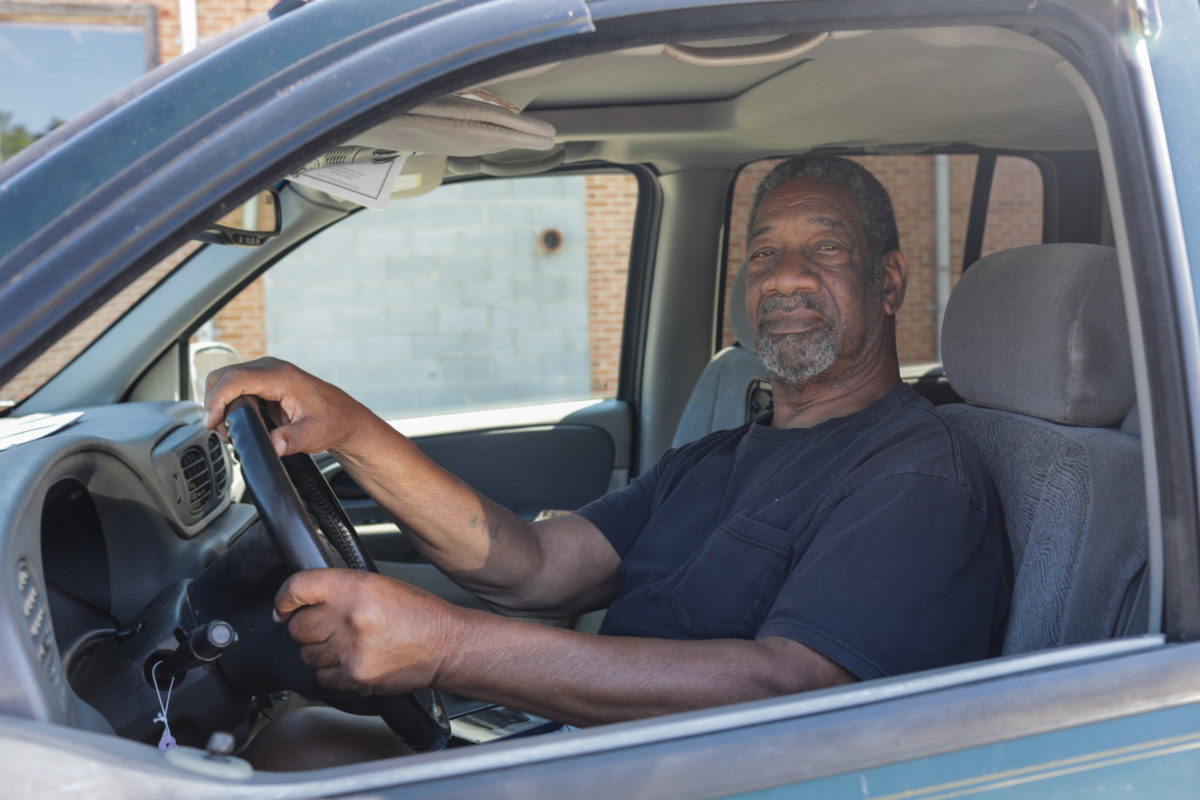
Meet Willie
Willie suffered a severe wound during the Vietnam War and spent 10 months in hospital recovery. After that, his call to return was strong, but the severity of his wounds would not allow it. Once out of the Army, he found his way to a local manufacturer in Gordonsville where he worked for many years before retiring.
His service to our country, however, wasn’t the end of Willie’s service. Because he uses the Mobile Food Pantry regularly, he sometimes gets duplicate items. When he does, he’s sure to share those with others.
“If you can’t use it, give it to somebody else. Pay it forward,” said Willie.
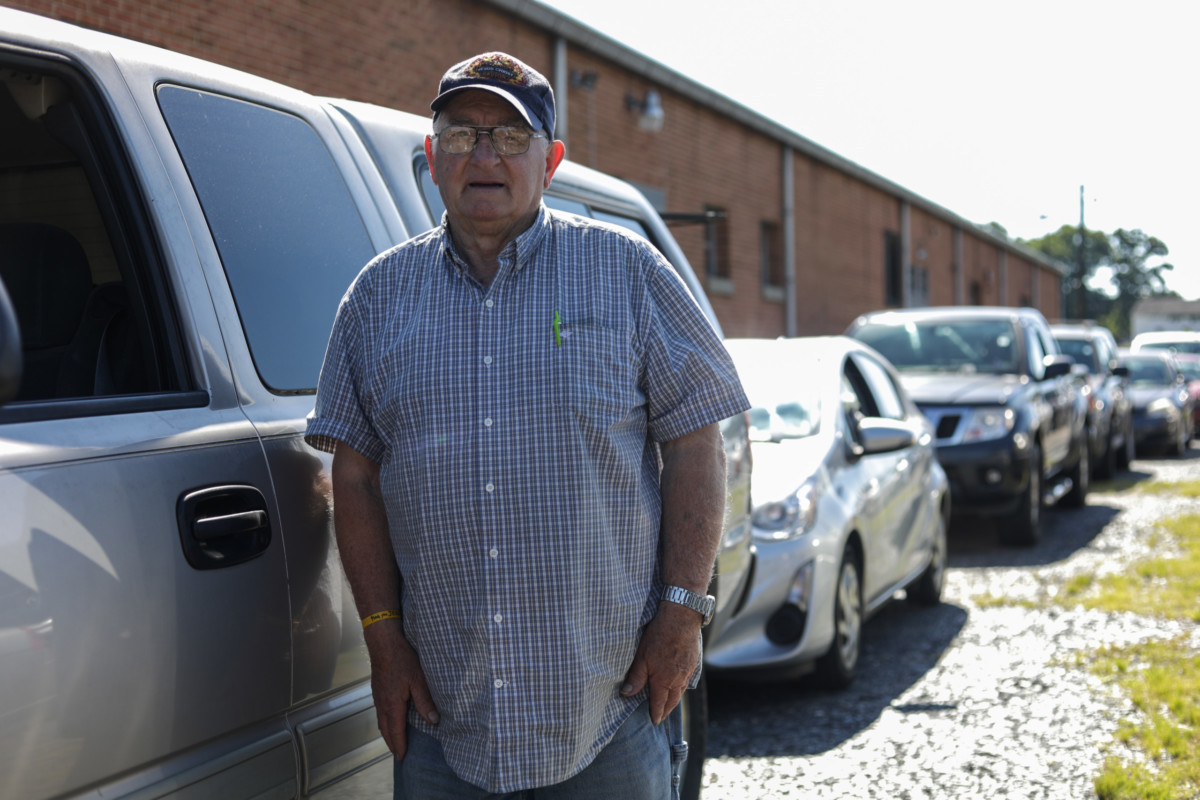
Meet David
David spent nine years in the service and was a Naval Aviator in Vietnam. We met him at a Mobile Food Pantry, where he mentioned that he likes to make chicken salad from the canned chicken he gets there.
David remarked about the Food Bank, “It’s a big help. It fills up a lot of empty spaces [in people’s cupboards].”
He believes that you must give back. “Give and it shall be given unto you,” he said.
He’s still in service of another kind, as the Chaplin at V.F.W. 8446 in Buckingham County.
Active members of the military are facing these challenges too.
According to the Institute for Veterans and Military Families, as many as 160,000 active-duty military members faced food insecurity last year.
1 in 5 of the households supported by Feeding America has a member who has served or is now serving in the U.S. military.
But how can this be?
Often, service members are required to move from base to base, which makes it difficult for spouses to keep regular work. Family members with jobs as teachers, hairdressers, or nurses may find it hard, because of the special licensing which doesn’t transfer into a new state. This quirk in the system can leave them relying on the single income of the service member, making it tricky to thrive, no matter what the profession.
The lower-ranking, active-duty military members make less than $40,000 a year. This lower income can make it tough to afford food at month’s end, especially when supporting a family. The bigger the household and the more junior the member, the more challenging it can be for them to get by.
Also, service members often don’t get to choose where they are based. Some are in cities with a very high cost of living where salaries and housing benefits don’t go far.
What about other forms of aid like SNAP (Supplemental Nutrition Assistance Program, formerly, Food Stamps)?
Very few active-duty members qualify for federal food assistance programs, even though many of them and their families face hunger. Only 2% of active-duty service members qualify for SNAP benefits, per the USDA. To figure out eligibility for programs like these, housing allowances are considered income for military service members, which is not the case for other groups who receive housing support.
We believe everyone should have enough to eat—veterans and those they served.
If someone you know is experiencing food insecurity, direct them to www.brafb.org/find-help for a list of food pantries near them.
If you know a veteran, no matter their situation, be sure to thank them on November 11.
